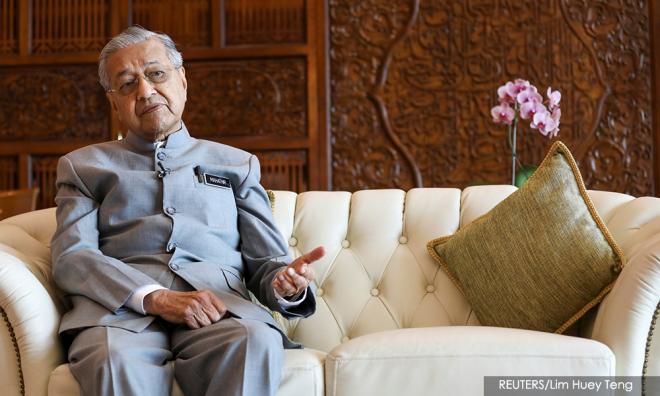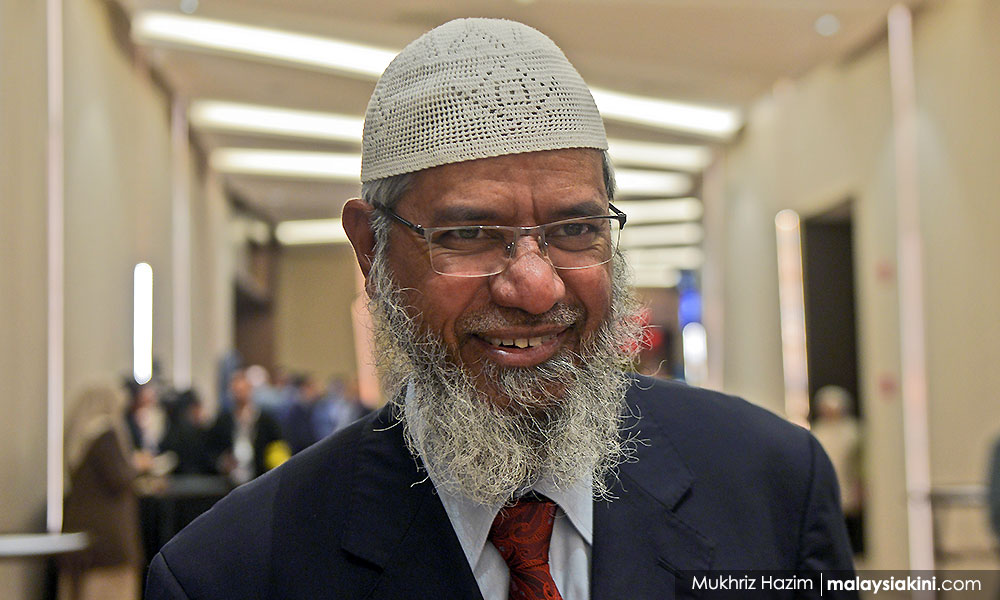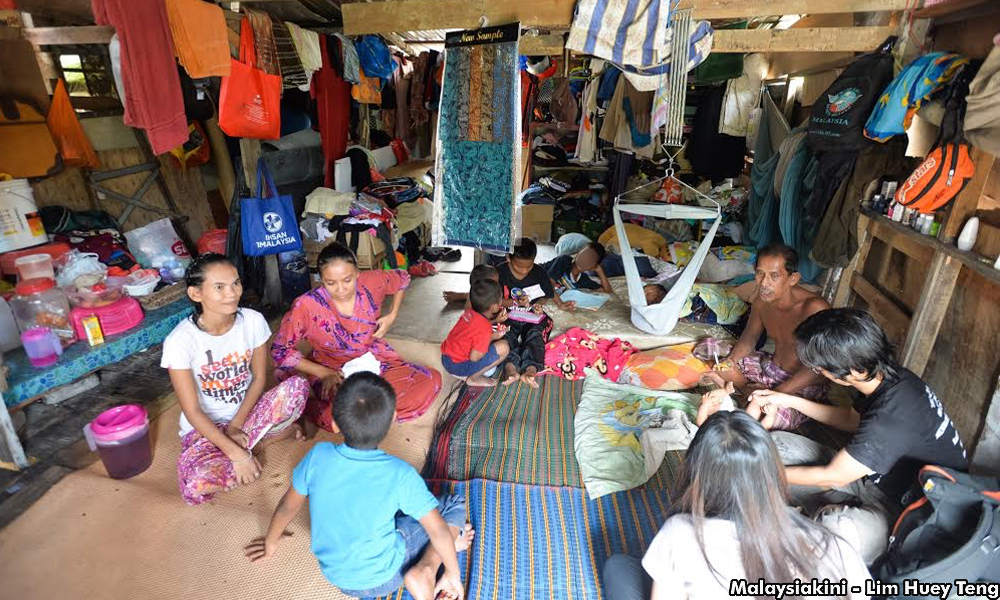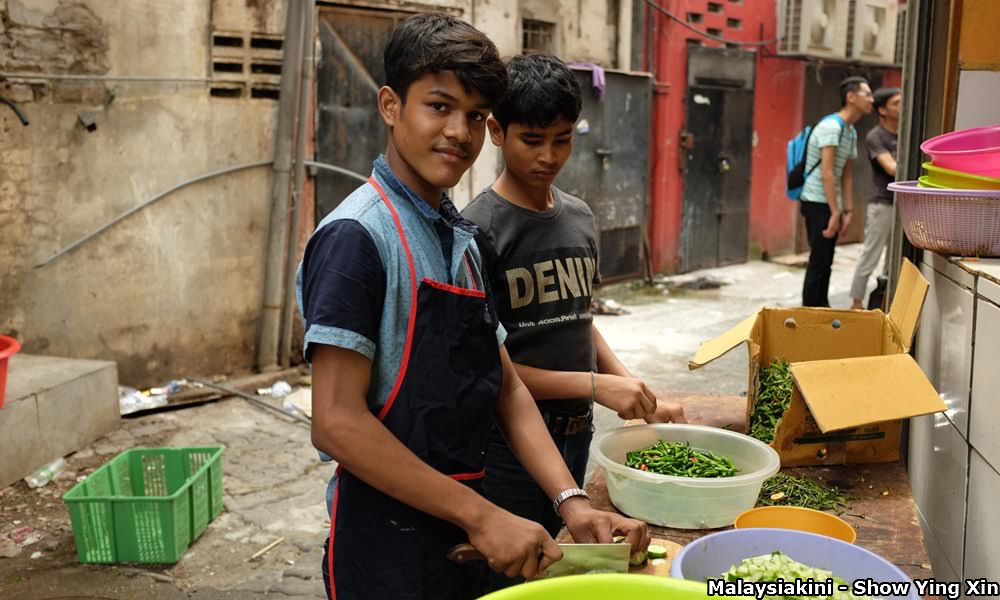
“Of all the preposterous assumptions of humanity over humanity, nothing exceeds most of the criticisms made on the habits of the poor by the well-housed, well-warmed, and well-fed.”
- Herman Melville
Prime Minister Dr Mahathir Mohamad’s rejoinder to poor (unproductive) people not to be “envious” of the wealthy is exactly the kind of class-baiting comment that stokes resentment against the political and religious elite.
While PSM's S Arutchelvan eloquently challenged the prime minister's comment, the reality is that all this is merely business as usual for the old maverick.
The canard that the plutocrat class pays taxes for the benefit of the civil service (the productivity of which has always been questioned) and for the development of the country is probably believed by a small section – that section who connives with the political class - and dismissed by the religious bureaucracy whose agenda is to narcotise the majority.
Does anyone really believe that the plutocrat class who are the cronies of the government – any government – are paying their “fair share”? A plutocrat class created by a system of patronage and post-May 13, a class engineered by a coterie, which includes the old maverick, that indulges in this sort of contempt for the "poor", especially during times of trouble?
The excesses of this class are public knowledge, but what creates a sense of “envy” is not their money but the fact that they seem to be immune from sanctions of the state when it comes to their lifestyles.
Are there poor people who would abuse the system for their own benefit? Of course, but the majority are just trying to get by.
Poor Malays who engage in the same behaviour of “wealthy” Malays are at the mercy of the state religious bureaucracy, and all these scandals, which entertain the masses on social media, are a distraction from the policy failures of mainstream politics.

Why do anything when you can fund someone like Islamic preacher Dr Zakir Naik (above) to mesmerise people with his diatribe about how living in the most squalid conditions here by voting for corrupt Muslim leaders guarantees a cushy afterlife?
Meanwhile, Zakir is feted by the political elite and the plutocrat class while the Malays are told that they are lazy and they should not rely on tongkat (crutches) from certain sections of the non-Malay demographic. It's all part of the political game.
Anecdotes from numerous articles about the urban poor (for example) dispel the crude caricatures of the prime minister, which he passes off as some sort of "truth-telling".
One such article from the Malay Mail, titled "Vision 2020? For KL’s urban poor, every day is a struggle to live", tells the story of a man named Jamali Arshad who said he worked in a printing company until it was forced to close under the 1998 financial crisis. He said he did not really recover after that.
“I was forced to work without pay for months and then had to blow my savings to care for my sick parents back in Teluk Intan, Perak. I had to sell off their land and house after they died and by the time I returned here, I didn’t really have any vision anymore.
"What new vision? SPV (Shared Prosperity Vision)? Will it help us, who rely on the kindness of others, to survive? Are there any good jobs for old people like me?
“I think the government should first help the people who do charity, like the soup kitchens giving food to the homeless and urban poor in this area,” Jamali was quoted as saying.
While the middle class, through their taxes, contribute to the funding of agencies meant to benefit a specific class of people based on race and religion, those very institutions are mired in corruption and political malfeasance, which aim to prop up mainstream narratives of race and religion in this country.

Various media have been doing in-depth stories on the “urban poor” and the last thing they are is “unproductive”. Working two jobs, taking care of extended families and dealing with crime, drug use and other vagaries that the class of people who support Mahathir dismiss as moral failings are the reality of most poor people in this country.
We can’t have Malaysians questioning the system which encourages them to reject ideas of smaller families but instead encourages them to propagate for religious and racial reasons, and then when their “bilangan bertambah banyak” (numbers increase), they are blamed for not wanting to do jobs that would require a level of time and resource management, which they have not been educated on through the education system.
Mahathir's simplistic rhetoric on poverty, of course, does not take into account the numerous issues that face those struggling to get by.
Just recently, in a letter, the Women's Aid Organisation (WAO) highlighted the bedfellows of poverty and domestic violence: “Siti’s husband abused her regularly, and because of both the poverty and the domestic violence, Siti’s daughter dropped out of school when she was 14 years old. After Siti and her children came to WAO for shelter, Siti struggled to get a job that paid enough to support herself and her children. Siti’s daughter has given up hope that she can succeed academically and now aims to get vocational skills training to help bring her family out of poverty.”
Even when it comes to commercial enterprise, the majority are at the mercy of a vast bureaucracy that Mahathir claims are funded with rich peoples' money. Add to this a religious bureaucracy that stifles the entrepreneurial spirit of the community and impedes cross-sectional commercial interaction – and what you have is a community which, locally at least, is marginalised from their fellow Malaysians and the greater worldwide economic terrain.
Then, of course, there are the state's narratives of “foreigners”. No not the Chinese and Indians – not this time – but the diaspora of foreign workers who came here because nobody wants to do the jobs they are willing to do.

The reality is that “Malay” leadership has failed to encourage an eco-system of competitive independence that would temper the consequences of the decades-long immigration and labour mismanagement that have damaged the Malay community.
But of course, these kinds of policy issues are not conducive to the kind of racial and religious politics that Pakatan Harapan and Umno/BN rely on. Instead of ceasing funding or cutting back on funding corrupt religious bureaucracies, what the government continues to do is blame the people who are the product of failed government policies.
But we can’t have the Malay community separating itself from those public institutions that are deemed “Malay” because to do so, to align with their fellow Malaysians and pass judgment on ineptitude, corruption and declining standards – in other words, to speak as a diverse community – would change the discourse from that of race to that of policy.
What did Aristotle say? “Poverty is the parent of revolution and crime.”
We already have the crime.
No prizes for guessing what kind of revolution it would be.
S THAYAPARAN is Commander (Rtd) of the Royal Malaysian Navy. A retired barrister-at-law, he is one of the founding members of Persatuan Patriot Kebangsaan. - Mkini



No comments:
Post a Comment
Note: Only a member of this blog may post a comment.